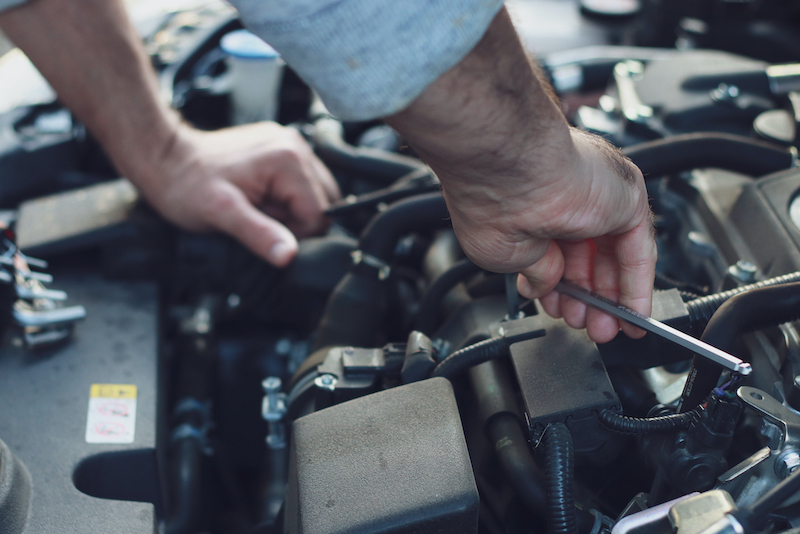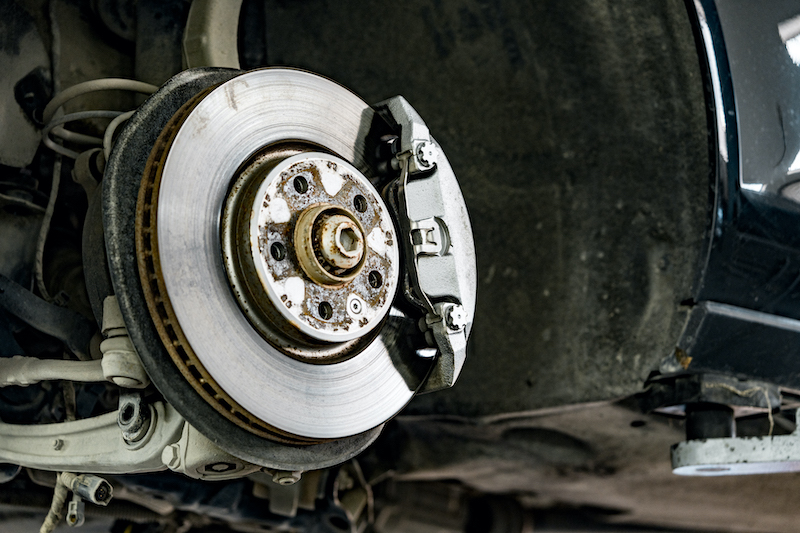A DIY Guide to Car Repairs for Beginners

Your first DIY car repair can feel like stepping into uncharted territory. However, if you’re armed with the right knowledge and guidance, it can be an empowering experience for you as a car owner.
In this blog, we aim to guide you through the basics of car maintenance. Think of it as a roadmap to understanding and executing fundamental tasks that keep your car running smoothly. From mastering basic maintenance to tackling essential repairs, this guide to car repair for beginners can help demystify the intimidating world under the hood.
We’ll start by equipping you with essential tools and safety precautions, ensuring a secure and confident car repair. Then, we’ll discuss basic maintenance, covering oil changes, air filters and fluid checks. We’ll also explore brake care, shedding light on inspection and replacement procedures for brake pads.
Moreover, we’ll walk you through the nuances of battery maintenance, from testing its vitality to safe replacement practices. Lastly, we’ll explain the simplicity of dealing with car fuses, emphasising their crucial role and how easily they can be managed.
Are you ready to learn and empower yourself with newfound confidence in maintaining your vehicle’s health? Let’s dive in!
1. Essential Tools and Safety Tips for A DIY Car Repair

When it comes to DIY car repair for beginners, your first step should be to gather all the essential tools. This typically includes a jack, socket set, wrenches, and safety gear like gloves and protective eyewear.
You also need to find a well-lit workspace and understand safe lifting practices before attempting any repairs. Make sure to prioritise safety by disconnecting the battery and familiarise yourself with the car manual before getting started. If you’re unsure or are feeling overwhelmed, seek guidance from credible sources or work with someone more experienced.
With these fundamental tools and safety measures in place, you’ll be ready to begin your DIY car repair journey in a safe and informed way. If you need to buy car parts before beginning your repair, we’ve got everything you need here!
2. Basic Car Maintenance

Basic maintenance is the foundation of car care. These basics include mastering the art of oil changes by selecting the right oil and filter. For a clean and efficient process, you have to follow step-by-step instructions.
You also need to learn the significance of air filters and their impact on engine health, and then master their replacement to maintain optimal car performance. It is also worth noting the importance of fluid checks, including coolant, brake, and transmission fluids, as these occasionally need topping up.
By becoming proficient in these fundamental tasks, you’ll ensure your car’s longevity and reliability while gaining confidence in your ability to maintain its essential systems.
3. How to Inspect and Replace Brake Pads

When it comes to car repair for beginners, brake care is paramount for safety. You have to learn to inspect your car’s brake pads for wear by understanding thickness and signs of damage.
Then, master the step-by-step process of replacing the pads, ensuring that you’re using the correct tools and safety precautions. Disassemble, clean, and install the new brake pads, focusing on proper caliper reassembly. Make sure that you understand the braking system, its components, and the significance of routine inspections.
By confidently tackling brake pad replacement, you can safeguard not just your vehicle’s performance but, more crucially, you and your passengers’ safety on the road. These car repairs also set a solid foundation for more advanced car knowledge.
4. Car Battery Maintenance and Replacement

Maintaining your car’s battery is the key to a reliable car. You can learn to test its health using a multimeter, ensuring voltage levels and capacity. You also need to thoroughly clean the terminals to prevent corrosion, extending your car battery life.
If replacement is necessary, understanding how to carry it out safely is essential. Ask a professional for advice and carry out diligent research beforehand. This will help you disconnect and install it securely. Don’t forget to prioritise routine checks to ensure that your vehicle starts reliably and the electronics function optimally.
By mastering car battery care, you’ll not only enhance your car’s longevity but gain confidence in handling an essential component, empowering your journey in DIY car repair.
5. Understanding and Replacing Car Fuses

Understanding car fuses is vital for troubleshooting electrical issues. You can start by learning their locations and purposes and deciphering ratings and types. Try to master the use of a fuse puller for safe removal and replacement.
By identifying and replacing blown fuses, you can quickly address electrical malfunctions and ensure uninterrupted functionality of all vital systems in your car. This simple task serves as a cornerstone in DIY car repair for beginners, empowering you to easily tackle electrical glitches, fostering confidence, and keeping your vehicle running smoothly on the road.
For DIY Car Repair for Beginners, Choose Online Automotive’s Car Parts
Want to fix your car troubles by yourself? We have the best car parts for you!
At Online Automotive, we offer a comprehensive selection of high-quality replacement parts, carefully curated to meet your automotive needs. Our competitive prices also ensure that you get the best value for your money.
With expert product descriptions and responsive customer support, we strive to make your shopping experience seamless. Trust us to be your reliable partner in the world of DIY car repairs, ensuring that your journey is convenient and hassle-free.
Explore our range of products and get in touch with us today!





